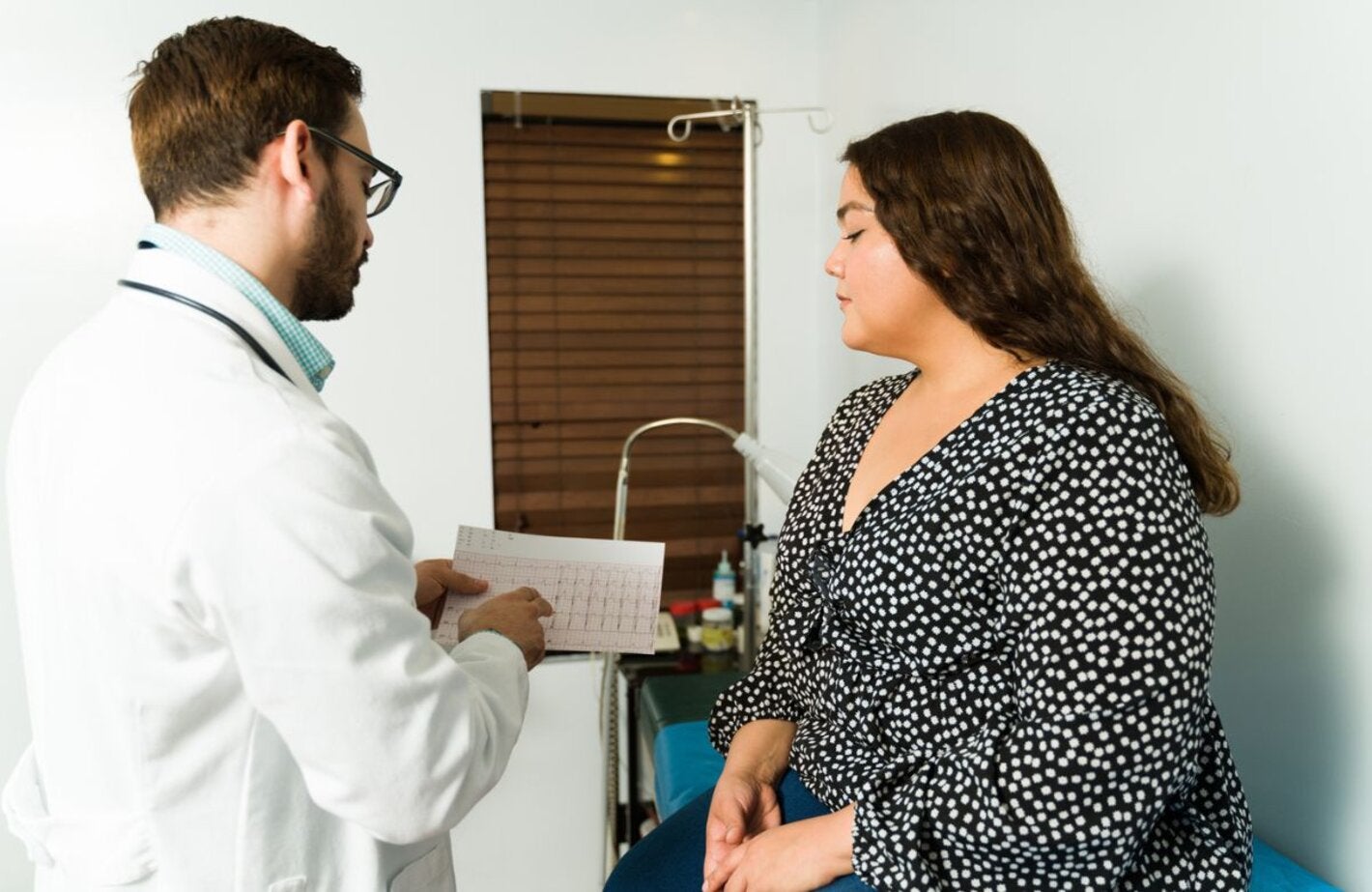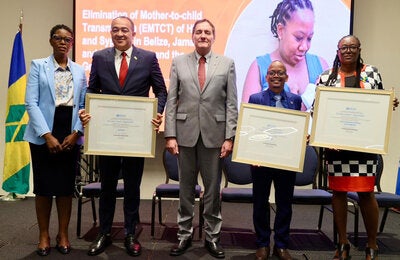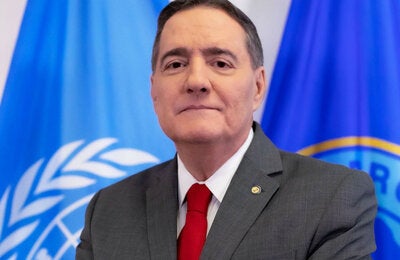
Washington DC, January 31, 2024 (PAHO) - The Pan American Health Organization (PAHO), the World Bank and the Lancet Americas launched the Commission on Primary Health Care (PHC) and Resilience in Latin America and the Caribbean (LAC), to develop a comprehensive conceptual policy framework for PHC and resilience; identify fundamental strategies and policies to develop and define the key investments that LAC countries could carry out; and conduct a comprehensive assessment of the foreseeable consequences of not developing such resilience in PHC in LAC countries.
Michel Bachelet, former president of Chile and former High Commissioner for Human Rights of the United Nations; Jarbas Barbosa, Director of the Pan American Health Organization; Juan Pablo Uribe, Global Health Director of the World Bank, and Elisa Pucu, Senior Editor, Lancet Americas participated in the virtual event which took place on 31 January 2024.
The multidisciplinary team of experts, managers, policymakers, and civil society leaders who will serve as commissioners seek to ensure strong representation from LAC, as well as gender balance, extensive experience and technical knowledge.
“This Commission marks a significant milestone to generate expert and relevant knowledge that will contribute not only to building resilient health systems in the Americas but also globally,” said Jarbas Barbosa.
“In addition, it is aligned with the regional movement that we are promoting through the Alliance for Primary Health Care that PAHO, the World Bank, and the Inter-American Development Bank launched in Uruguay in December 2023 to support the countries of the Region in the development of more resilient, equitable, and inclusive health systems for the future,” he added.
“I want to congratulate the initiative of this Commission that addresses issues of great political, economic, and social relevance; that have brought together great experts,” said Michel Bachelet during her closing remarks.
“PAHO is undoubtedly the lead health authority, and the World Bank is a great financier for development in Latin America and the Caribbean. Both organizations have knowledge of the reality of the countries, and together they can create very good products and impact,” she added.
Likewise, she suggested that the Commission “not only produce a high-quality academic exercise but also generate effort of equal magnitude to reach those who make decisions, ensuring participation of civil society so that health systems transformations actually occur, because this cannot wait."
The Commission is co-chaired by senior specialists from the World Bank and PAHO: Cristian A. Herrera, Senior Health Specialist at the World Bank; Manuela Villar Uribe, Senior Health Specialist at the World Bank; Ernesto Báscolo, Unit Chief of Primary Health Care and Integrated Service Delivery, and Natalia Houghton, Specialist in Health Systems Evaluation and Policy.
The academic chairs are Sara Bennett, Professor and Associate Chair in the International Health Department of the Johns Hopkins Bloomberg School of Public Health, and Adriano Massuda, Professor at the Getúlio Vargas Foundation and coordinator of the Center for Studies in Health Planning and Management (FGV-Saúde).
The experts who make up the Commission are the following:
- Marcia Castro: Andelot Professor of Demography, chair of the Department of Global Health and Population at the Harvard TH Chan School of Public Health, and director of the Brazil Studies Program of the David Rockefeller Center for Latin American Studies (DRCLAS)
- Mirna Cunningham: Doctor and Surgeon with Specialty in Public Health and Human Rights of Indigenous Peoples - Nicaragua
- Peter Figueroa: Doctor and Professor of Public Health, Epidemiology and HIV/AIDS at The University of the West Indies, Mona, Jamaica
- Walter Flores: Research Professor at the Accountability Research Center, American University, Washington, DC and a research associate at the Center for the Study of Equity and Governance in Health Systems - Guatemala
- Pablo Gaitan Rossi: Director of EQUIDE at the Research Institute for Development with Equity, Universidad Iberoamericana, Ciudad de México, and managing editor of the International Journal for Equity in Health
- Ezequiel García Elorrio: Director, Department of Health Care Quality and Patient Safety, Institute for Clinical Effectiveness and Health Policy, Argentina
- Ligia Giovanella: Senior Researcher at the Fiocruz Centre for Strategic Studies (CEE/Fiocruz), lecturer at the Postgraduate Programme in Public Health at Ensp/Fiocruz, Brazil
- Frederico Guanais: Deputy Head of the OECD's Health Division, France
- Stella Hartinger: Associate Professor and Environmental Epidemiologist, School of Public Health, Universidad Peruana Cayetano Heredia
- Daniel Luna: Head, Department of Health Informatics of Hospital Italiano of Buenos Aires and Director of the Master and Health Informatics Residency of the Hospital Italiano University Institute, Argentina
- James Macinko, PhD: Professor, Departments of Health Policy and Management and Community Health Sciences, UCLA, United States
- Helia Molina: Member of Parliament, former Minister of Health, Chile
- Diana Pinto Masis: International Health Policy and Economics specialist - Colombia
- Magdalena Rathe: President and founder of the Plenitude Foundation, Dominican Republic
- Rocío Sáenz Madrigal: Executive Director of the Network of the Americas for Health Equity (RAES) – Costa Rica
- Renato Tasca: Consultant, Institute of Public Policy Studies, Brazil
- Carina Vance Mafla: General Secretary of Territorial Coordination, Governance and Social Participation of the Municipality of the Metropolitan District of Quito, Ecuador
- Jeannie Haggerty, PhD: Full Professor, Dept. of Family Medicine, McGill University (Canada)
The Lancet Americas Commission on Primary Health Care and resilience in Latin America and the Caribbean seeks to advance knowledge that will inform decision-making for the future development of PHC and resilience in the region.



